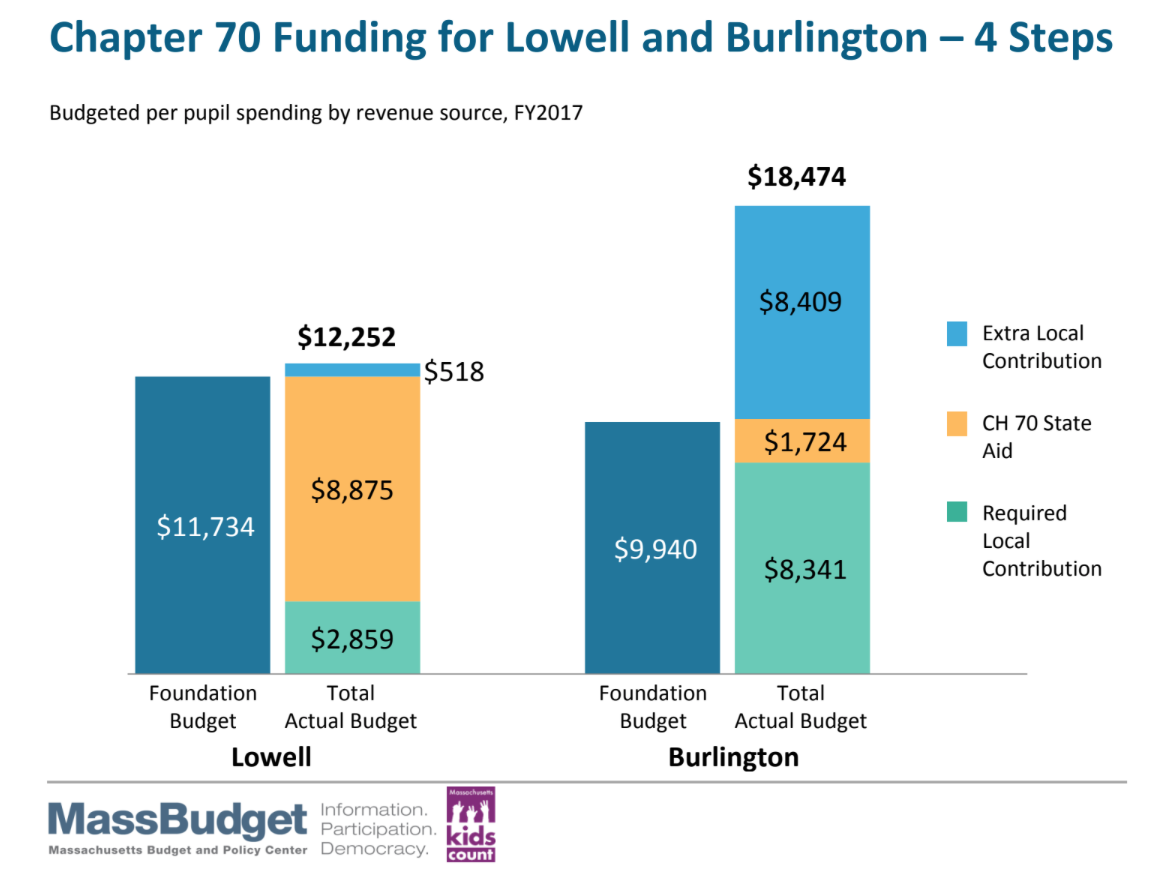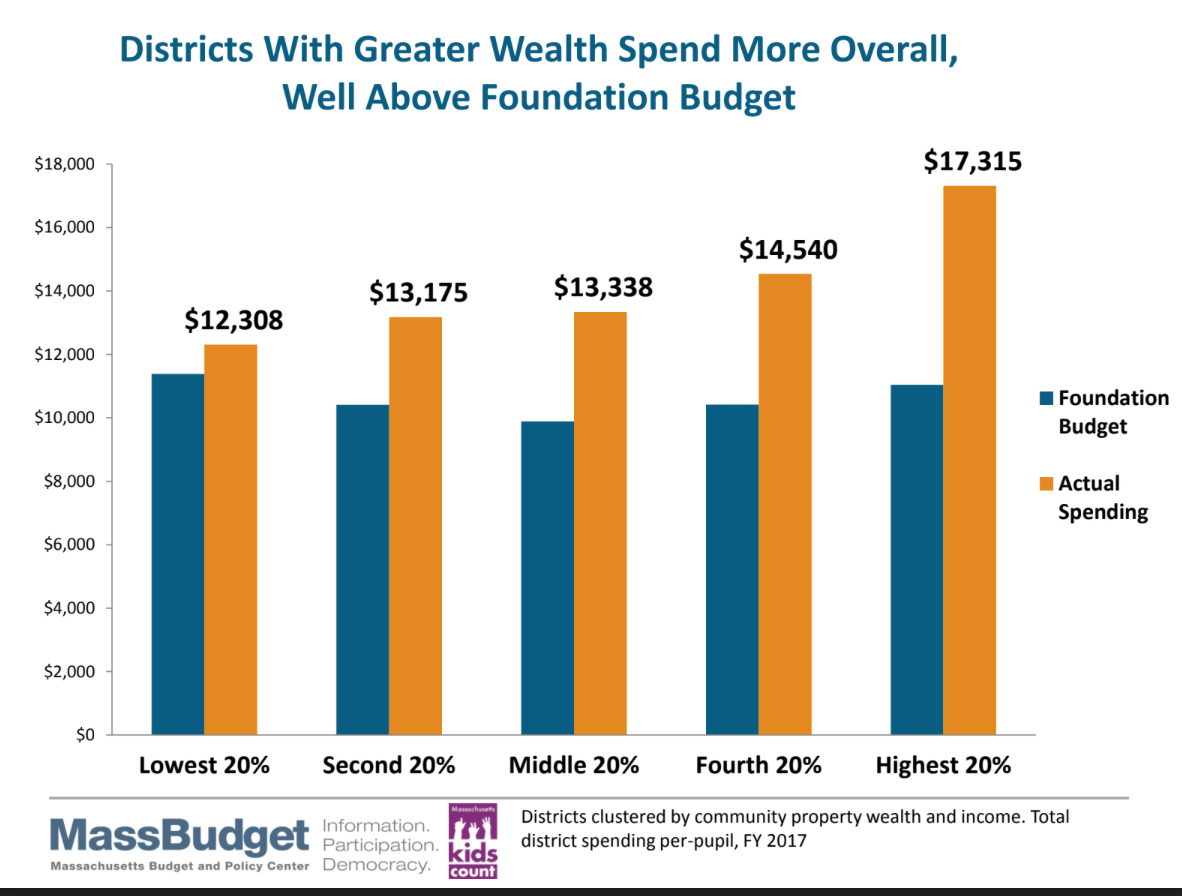If you don't like the numbers, just change the criteria
There is so much to digest from last evening's Funding Forum. So I'm just going to start with one aspect of Massachusetts school funding - the poverty level calculations.

Here's a bit of recent history. In 2014, the year prior to when I retired, the poverty level in Lowell overall was 75.1%. It was called what it is: Low Income and was based on free and reduced lunch statistics as explained in this report from Massachusetts Department of Elementary and Secondary Education.
When I retired in 2015, the Low Income Level in Lowell, was re-tooled as "Economically Disadvantaged". In 2015, the number of students considered economically disadvantaged in Lowell was reported to be 49.0%. One would think the world would be knocking at Lowell's door to find out how magically 25% of the public school student population was no longer economically disadvantaged. But, the world is not.
There was no magic solution. The same children I taught who needed supports because they came to us from low income families and socio-economically disadvantaged environments, simply moved up a grade level and experienced those same socio-economic traumas. This time, the supports were fewer. The change in counting these children was caused by the Commonwealth's redefinition of how low income status should be determined. Starting in 2015, the determining factors became participation in SNAP, DCF foster care, transitional assistance for families, and Medicaid (MassHealth).
How does this impact school funding? To begin with, the Foundation Budget allocations contain a calculation to support low income students. The low income multiplier is applied to a community's low income population to assist with supports these children may require in order to be on an equitable playing field with children who do not experience poverty. So when the Commonwealth changed the definition of poverty so that fewer students were considered economically disadvantaged, the amount of funding available for support also decreased.
This is some pretty fancy footwork with data and statistics isn't it? Correcting the calculations for low income support was one of the issues directly addressed by the Foundation Budget Review Commission 3 years ago. It is also one of the many reasons why the Foundation Budget must be overhauled this year.
Our children who need support, whether that means additional academic support or extra-curricular opportunities before/after school, or essential wrap-around services such as programs that address health needs and food insecurities, cannot wait. Changing the definition doesn't solve the problem. It just makes things more difficult.

 About two weeks ago, the Massachusetts Legislature failed once again to update school funding formulae known as the "Foundation". In my opinion, this is not only a huge disappointment, it is a disservice to students, families, and public schools in 351 cities and towns across Massachusetts.Here in Lowell, the erosion of school services and supports can be traced in the budget cuts that have been necessary over the last nearly 20 years. In the late 1990s, when an elementary class size reached 25, it was common practice to assign a paraprofessional to that classroom, which allowed for more focused and individualized attention to students. In 2015, my retirement year, my grade level of 100 students and 4 classroom teachers shared 1 paraprofessional.In the 1990s and early 2000s, elementary school staff included not only a library aide, but a certified Library Media Specialist. The library was a space where students not only learned research skills, but were exposed to wonderfully diverse literature and media curated by the Library Media staff. By the mid-2000s, all but one Library Media specialist was cut from the Lowell Public Schools and school libraries were maintained by Library Media aides. This year, 2018-19, the school budget has cut all library staff in Grades Kindergarten through Grade 8 essentially closing the libraries to any students below Grade 9.These are but two examples of service cuts in Lowell. There have been many others. Teachers in Lowell spend inordinate amounts of personal money (in my own case, I spent on average of $1,000 each year and some years much more) to supply classrooms. Social workers, Speech and Language therapists, OT, PT, Special Education.... all carry larger-than-reasonable caseloads.Have municipalities like Burlington or Wellesley cut K-8 library staff and access to school libraries? Of course not. Wealthier communities make up the shortfalls in Foundation funding from their property tax base and a community that is able to afford to allocate more funds toward schools. Does that seem equitable to anyone? (read WBUR's commentary
About two weeks ago, the Massachusetts Legislature failed once again to update school funding formulae known as the "Foundation". In my opinion, this is not only a huge disappointment, it is a disservice to students, families, and public schools in 351 cities and towns across Massachusetts.Here in Lowell, the erosion of school services and supports can be traced in the budget cuts that have been necessary over the last nearly 20 years. In the late 1990s, when an elementary class size reached 25, it was common practice to assign a paraprofessional to that classroom, which allowed for more focused and individualized attention to students. In 2015, my retirement year, my grade level of 100 students and 4 classroom teachers shared 1 paraprofessional.In the 1990s and early 2000s, elementary school staff included not only a library aide, but a certified Library Media Specialist. The library was a space where students not only learned research skills, but were exposed to wonderfully diverse literature and media curated by the Library Media staff. By the mid-2000s, all but one Library Media specialist was cut from the Lowell Public Schools and school libraries were maintained by Library Media aides. This year, 2018-19, the school budget has cut all library staff in Grades Kindergarten through Grade 8 essentially closing the libraries to any students below Grade 9.These are but two examples of service cuts in Lowell. There have been many others. Teachers in Lowell spend inordinate amounts of personal money (in my own case, I spent on average of $1,000 each year and some years much more) to supply classrooms. Social workers, Speech and Language therapists, OT, PT, Special Education.... all carry larger-than-reasonable caseloads.Have municipalities like Burlington or Wellesley cut K-8 library staff and access to school libraries? Of course not. Wealthier communities make up the shortfalls in Foundation funding from their property tax base and a community that is able to afford to allocate more funds toward schools. Does that seem equitable to anyone? (read WBUR's commentary  We are about a week beyond the Foundation Budget Review Commission (FBRC) disappointment. Last evening, as I listened in to a conference call sponsored by Mass Education Justice Alliance (MEJA), this question was posed:
We are about a week beyond the Foundation Budget Review Commission (FBRC) disappointment. Last evening, as I listened in to a conference call sponsored by Mass Education Justice Alliance (MEJA), this question was posed:
 If a picture is worth a 1000 words, this one, courtesy of
If a picture is worth a 1000 words, this one, courtesy of